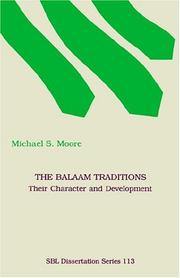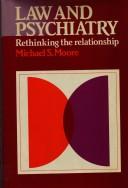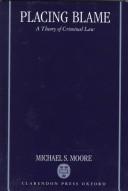| Listing 1 - 10 of 18 | << page >> |
Sort by
|

ISBN: 0198268793 9780198268796 Year: 2000 Publisher: Oxford Oxford University Press
Abstract | Keywords | Export | Availability | Bookmark
 Loading...
Loading...Choose an application
- Reference Manager
- EndNote
- RefWorks (Direct export to RefWorks)
Legal theory and methods. Philosophy of law --- Jurisprudence. --- Law --- Critical legal studies. --- Philosophy. --- Philosophy --- Law - Philosophy
Book
ISBN: 0198257910 9780198257912 Year: 1993 Publisher: Oxford Clarendon
Abstract | Keywords | Export | Availability | Bookmark
 Loading...
Loading...Choose an application
- Reference Manager
- EndNote
- RefWorks (Direct export to RefWorks)
Criminal act. --- Criminal liability. --- Criminal law --- Philosophy. --- 343.9.001 --- 316.282 --- Criminal act --- Criminal liability --- -Crime --- Crimes and misdemeanors --- Criminals --- Law, Criminal --- Penal codes --- Penal law --- Pleas of the crown --- Public law --- Crime --- Criminal justice, Administration of --- Criminal procedure --- Accountability, Criminal --- Criminal accountability --- Criminal responsibility --- Liability, Criminal --- Responsibility, Criminal --- Liability (Law) --- Criminologische theorie --- Handelingstheorie. Social action. Weber. Actionalisme. Actietheorie--(sociologische scholen) --- Philosophy --- Law and legislation --- Legal status, laws, etc. --- -Criminologische theorie --- 316.282 Handelingstheorie. Social action. Weber. Actionalisme. Actietheorie--(sociologische scholen) --- 343.9.001 Criminologische theorie --- -Accountability, Criminal --- Criminal law - Philosophy.

ISBN: 1555403271 155540328X 9781555403270 9781555403287 Year: 1990 Volume: 113 Publisher: Atlanta Scholars Press
Abstract | Keywords | Export | Availability | Bookmark
 Loading...
Loading...Choose an application
- Reference Manager
- EndNote
- RefWorks (Direct export to RefWorks)

ISBN: 0521255988 Year: 1984 Publisher: Cambridge Cambridge University press
Abstract | Keywords | Export | Availability | Bookmark
 Loading...
Loading...Choose an application
- Reference Manager
- EndNote
- RefWorks (Direct export to RefWorks)
Forensic psychiatry --- Insanity --- -616.89 --- Criminal insanity --- Insanity (Jurisprudence) --- Lunacy (Law) --- Mental illness --- Mentally ill --- Capacity and disability --- Insanity defense --- Medical jurisprudence --- Psychiatry --- Mentally ill offenders --- Jurisprudence --- Psychopathologie --- Law and legislation --- Legal status, laws, etc. --- Forensic psychiatry. --- Insanity (Law) --- Insanity (Law). --- 616.89
Book
ISBN: 0191594644 9780191594649 Year: 2010 Publisher: Oxford : Oxford University Press,
Abstract | Keywords | Export | Availability | Bookmark
 Loading...
Loading...Choose an application
- Reference Manager
- EndNote
- RefWorks (Direct export to RefWorks)
With this volume, Michael Moore offers the first thorough examination of the retributivist theory of the criminal law. He not only defends the theory, but also details the implications it would have for the general structure of criminal law.
Criminal liability --- Law, General & Comparative --- Law, Politics & Government --- Accountability, Criminal --- Criminal accountability --- Criminal responsibility --- Liability, Criminal --- Responsibility, Criminal --- Liability (Law) --- Law and legislation --- Responsabilidad penal --- Derecho
Book
ISBN: 0191594652 9780191594656 Year: 2010 Publisher: Oxford : Oxford University Press,
Abstract | Keywords | Export | Availability | Bookmark
 Loading...
Loading...Choose an application
- Reference Manager
- EndNote
- RefWorks (Direct export to RefWorks)
What implications are there for the criminal law from the philosophy of action? Providing a unified account of the theory of action presupposed by both Anglo-American criminal law and the morality that underlies it, Moore develops a coherent theory of action in philosophy and assesses its effects on criminal law.
Criminal act --- Criminal liability --- Criminal law --- Law, General & Comparative --- Law, Politics & Government --- Philosophy --- Crime --- Crimes and misdemeanors --- Criminals --- Law, Criminal --- Penal codes --- Penal law --- Pleas of the crown --- Public law --- Criminal justice, Administration of --- Criminal procedure --- Accountability, Criminal --- Criminal accountability --- Criminal responsibility --- Liability, Criminal --- Responsibility, Criminal --- Liability (Law) --- Law and legislation --- Legal status, laws, etc. --- Criminal liability. --- Criminal law. --- Philosophy.
Book
ISBN: 0190864028 0190864001 019086401X Year: 2020 Publisher: New York : Oxford University Press,
Abstract | Keywords | Export | Availability | Bookmark
 Loading...
Loading...Choose an application
- Reference Manager
- EndNote
- RefWorks (Direct export to RefWorks)
Mechanical Choices details the intimate connection that exists between morality and law: the morality we use to blame others for their misdeeds and the criminal law that punishes them for these misdeeds. This book shows how both law and morality presuppose the accuracy of common sense, a centuries-old psychology that defines people as rational agents who make honorable choices and act for just reasons. It then shows how neuroscience is commonly taken to challenge these fundamental psychological assumptions.
Criminal liability --- Criminal psychology --- Free will and determinism. --- Forensic neuropsychology. --- Law and biology. --- Philosophy. --- Psychological aspects. --- Biology and law --- Biology --- Medicolegal neuropsychology --- Forensic neurology --- Forensic psychology --- Neuropsychology --- Compatibilism --- Determinism and free will --- Determinism and indeterminism --- Free agency --- Freedom and determinism --- Freedom of the will --- Indeterminism --- Liberty of the will --- Determinism (Philosophy) --- Criminal psychiatry --- Criminals --- Psychology, Criminal --- Criminal anthropology --- Psychology --- Psychology, Pathological --- Accountability, Criminal --- Criminal accountability --- Criminal responsibility --- Liability, Criminal --- Responsibility, Criminal --- Liability (Law) --- Law and legislation --- Responsabilitat penal --- Psicologia criminal. --- Lliure albir i determinisme. --- Neuropsicologia. --- Psiquiatria forense. --- Dret i biologia. --- Filosofia. --- Biologia i dret --- Biologia --- Psiquiatria forense --- Psiquiatria jurídica --- Delinqüents malalts mentals --- Medicina legal --- Psiquiatria --- Neurofisiologia --- Psicofisiologia --- Determinisme i lliure albir --- Franc albir --- Indeterminisme --- Determinisme (Filosofia) --- Delinqüents --- Antropologia criminal --- Psicologia --- Psicopatologia --- Responsabilitat criminal --- Malalts mentals perillosos --- Dret penal --- Responsabilitat (Dret) --- Dret i legislació --- Responsabilitat
Book
ISBN: 1280498528 9786613593757 0191555169 9780191555169 9780199256860 0199256861 9780199599516 0199599513 019171965X 9780191719653 0191021504 9780191021503 Year: 2010 Publisher: New York, N.Y. Oxford University Press
Abstract | Keywords | Export | Availability | Bookmark
 Loading...
Loading...Choose an application
- Reference Manager
- EndNote
- RefWorks (Direct export to RefWorks)
The concept of causation is fundamental to ascribing moral and legal responsibility for events. Yet the relationship between causation and responsibility remains unclear. What precisely is the connection between the concept of causation used in attributing responsibility and the accounts ofcausal relations offered in the philosophy of science and metaphysics? How much of what we call causal responsibility is in truth defined by non-causal factors? Causation and Responsibility argues that much of the legal doctrine on these questions is confused and incoherent, and offers the firstcomprehensive attempt since Hart and Honore to clarify the philosophical background to the legal and moral debates..The book first sets out the place of causation in criminal and tort law and outlines the metaphysics presupposed by the legal doctrine. It then analyzes the best theoretical accounts of causation in the philosophy of science and metaphysics, and using these accounts criticizes many of the core legalconcepts surrounding causation - such as intervening causation, foreseeability of harm, and complicity. It considers and rejects the radical proposals to eliminate the notion of causation from law by using risk analysis to attribute responsibility. The result of the analysis is a powerful argumentfor revising our understanding of the role played by causation in the attribution of legal and moral responsibility.
Causation. --- Responsibility. --- Philosophy --- Philosophy & Religion --- Ethics --- Accountability --- Moral responsibility --- Obligation --- Supererogation --- Causality --- Cause and effect --- Effect and cause --- Final cause --- Beginning --- God --- Metaphysics --- Necessity (Philosophy) --- Teleology --- Causation (Criminal law) -- Moral and ethical aspects. --- Causation (Criminal law). --- Proximate cause (Law). --- Proximate cause (Law) --- Causation (Criminal law) --- Liability (Law) --- Law, General & Comparative --- Law, Politics & Government --- Moral and ethical aspects --- Ontology --- Philosophy of mind --- Legal responsibility --- Responsibility, Legal --- Responsibility (Law) --- Civil law --- Contracts --- Obligations (Law) --- Causa (Criminal law) --- Causality (Criminal law) --- Criminal law --- Criminal liability --- Cause, Proximate --- Causation --- Negligence --- Torts --- Philosophical anthropology --- General ethics --- Law --- Liability (Law). --- Metaphysics. --- Moral and ethical aspects. --- Causation (Criminal law) - Moral and ethical aspects --- Royaume-Uni --- Responsibility --- Psychology

ISBN: 9780521319782 0521319781 Year: 1984 Publisher: Cambridge ; London ; New York: Cambridge university press,
Abstract | Keywords | Export | Availability | Bookmark
 Loading...
Loading...Choose an application
- Reference Manager
- EndNote
- RefWorks (Direct export to RefWorks)

ISBN: 0198254172 Year: 1997 Publisher: Oxford : New York : Clarendon Press ; Oxford University Press,
Abstract | Keywords | Export | Availability | Bookmark
 Loading...
Loading...Choose an application
- Reference Manager
- EndNote
- RefWorks (Direct export to RefWorks)
Criminal law --- Punishment. --- Retribution. --- Philosophy.
| Listing 1 - 10 of 18 | << page >> |
Sort by
|

 Search
Search Feedback
Feedback About UniCat
About UniCat  Help
Help News
News